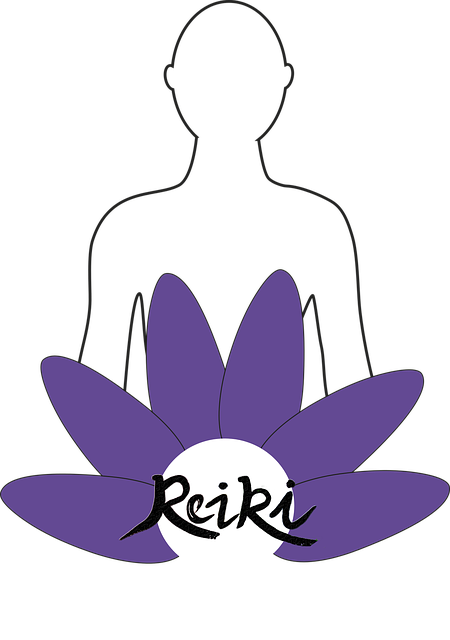Reiki, an ancient Japanese energy healing practice, has gained significant attention in recent years as a tool for holistic well-being. If you are passionate about healing and personal growth, obtaining a Reiki certification can be a transformative step. This article will provide an in-depth understanding of Reiki certification, its levels, benefits, and how to choose the right training program.
What is Reiki?
Reiki, which means "universal life energy," is a healing technique that promotes relaxation, stress reduction, and energy balance. Developed in Japan by Mikao Usui in the early 20th century, Reiki involves channeling energy through the practitioner’s hands to the recipient’s body. This process is believed to stimulate the body's natural healing processes.
Why Pursue Reiki Certification?
Personal Growth and Spiritual Awareness
A Reiki certification journey is not just about learning techniques but also about fostering personal growth. It enhances your understanding of energy flow and deepens your spiritual awareness.
Helping Others Heal
Reiki practitioners are trained to support others in achieving emotional, physical, and spiritual balance. Certification equips you with the skills to make a positive impact in people’s lives.
Professional Opportunities
Certified Reiki practitioners can offer professional services in wellness centers, spas, or even establish their own practices. Reiki certification is a gateway to turning your passion for healing into a career.
Levels of Reiki Certification
Reiki training is typically divided into three levels, each focusing on different aspects of practice and mastery.
Level 1: Reiki Beginner
This level is an introduction to Reiki. Trainees learn the basics, including how to channel Reiki energy for self-healing and helping others. Attunement, a process where a Reiki Master opens your energy channels, is a key component of this level.
Key Learnings in Level 1:
- History and principles of Reiki.
- Hand positions for energy healing.
- Techniques for self-treatment.
Level 2: Practitioner Level
At this stage, practitioners deepen their skills and are introduced to Reiki symbols. These symbols are tools to amplify energy, perform distant healing, and focus on specific issues.
Key Learnings in Level 2:
- Understanding and using Reiki symbols.
- Techniques for emotional and mental healing.
- Distance healing methods.
Level 3: Reiki Master and Teacher
The final level prepares you to become a Reiki Master, capable of teaching and attuning others. This level involves advanced techniques and a profound understanding of the practice.
Key Learnings in Level 3:
- Master symbols and their applications.
- Techniques for teaching Reiki.
- Advanced healing practices.
Benefits of Reiki Certification
Enhanced Self-Healing
A Reiki certification empowers you with tools to address stress, anxiety, and physical discomfort in your own life.
Connecting with a Like-Minded Community
Becoming certified connects you with a community of practitioners who share your passion for holistic healing.
Credibility and Professionalism
Having a certification from a recognized Reiki Master enhances your credibility, especially if you wish to offer your services professionally.
How to Choose the Right Reiki Certification Program
Research Reiki Masters
The quality of your training depends heavily on the Reiki Master. Look for someone experienced, approachable, and well-reviewed.
Consider Accreditation
While Reiki is not universally regulated, choosing a program affiliated with respected organizations like the International Center for Reiki Training (ICRT) ensures quality instruction.
Evaluate Course Structure
Make sure the program offers hands-on practice, detailed materials, and opportunities for ongoing mentorship.
Flexibility and Accessibility
Many programs now offer online Reiki certification courses. While in-person training provides hands-on experience, online classes can be convenient for those with limited access to local practitioners.
Preparing for Reiki Certification
Develop an Open Mindset
Reiki involves working with energy, which requires openness to its spiritual and holistic aspects.
Practice Regular Meditation
Meditation helps you become attuned to your energy flow, making it easier to grasp Reiki principles during training.
Set Intentions
Define your goals for pursuing Reiki certification. Whether for personal healing or professional development, clarity of purpose enhances the experience.
What to Expect During Reiki Training
Attunements
Attunements are pivotal in Reiki training. During this process, the Reiki Master transfers energy to open your channels, enabling you to connect with the universal energy.
Hands-On Practice
Training involves practicing techniques on yourself and others. This hands-on experience is invaluable for mastering the art of Reiki.
Spiritual Insights
Many trainees report experiencing profound personal insights and heightened intuition during their journey.
Life after Reiki Certification
Practicing Reiki Professionally
Once certified, you can offer your services in private sessions, join wellness centers, or integrate Reiki into other healing modalities.
Continuing Education
Reiki is a journey of continuous learning. Advanced workshops and ongoing mentorship can deepen your skills and expand your practice.
Sharing Reiki with Loved Ones
Even if you don’t pursue Reiki professionally, sharing this healing technique with family and friends can be immensely rewarding.
Common Questions about Reiki Certification
How Long Does It Take to Get Certified?
Reiki Level 1 and 2 certifications can often be completed in a weekend, while the Reiki Master level may take several months, depending on the program.
Is Reiki Certification Expensive?
Costs vary widely, with Level 1 courses starting at around $100 and Master-level certifications costing upwards of $500.
Do You Need a License to Practice Reiki?
Reiki is considered a complementary therapy and doesn’t require a license in most countries. However, local regulations should be checked.
Conclusion
Reiki certification is a profound journey into the art of energy healing, offering personal growth, spiritual awakening, and professional opportunities. Whether you wish to practice for yourself, help others, or pursue a career, Reiki provides transformative benefits.
By choosing the right program and committing to the practice, you can unlock the power of universal energy and share its healing potential with the world.



